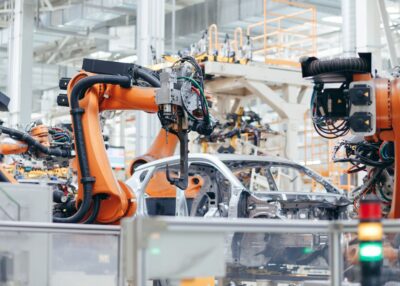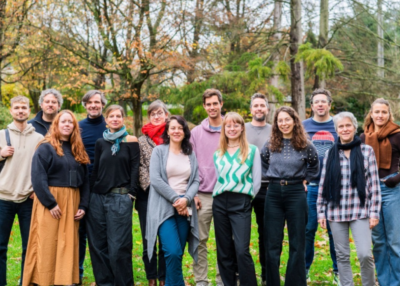
Brussels: a sustainable construction expertise
Last October, our ecobuild cluster visited Stockholm to test the waters of the sustainable construction and renovation industry, as part of a Nordic research trip. While at first glance, the Scandinavian countries may appear to have it all, our own flat country has its fair share of green prowess… I take a coffee break with Emmanuel Malfeyt, ecobuild.brussels advisor.
What aspects of sustainable construction in Sweden do you envy?
E.M. : Scandinavians are very good at listening to each other, to decide how a building exists within public space and the environment. Simply put, this is because decisions on ecology are not affected by party politics, like at home. Because there is no risk of renegotiation at the end of every mandate, these resolutions can be applied on a long term basis. This explains why Sweden are leaders in sustainable development, in terms of the United Nations Objectives.
But there are two sides to every coin…
E.M. : Yes, because although sustainable town planning is very well managed in Stockholm, building costs are among the highest in Europe. There is a huge shortage of workers; the city is therefore reliant on foreign companies for the construction of the new public buildings it has committed to building by 2021.
Social housing is also three times more expensive in Stockholm, and no system has been put in place to remedy this. Brussels is ahead in terms of affordable social housing. Partners like citydev work hand in hand with the private sector to provide quality buildings at a very low price. So that’s where we come in.
What can Brussels bring to the table in terms of sustainable development?
We are very strong in terms of building energy performance. The PEB Building Energy Performance Certificate, launched in Brussels in 2008, represents a significant tool for achieving CO2 reduction targets, as energy consumption by buildings accounts for 70 % of overall usage.
Does that make our capital the “Mecca” of ultra-low energy buildings?
E.M. : While the Scandinavian countries have tended to go in blind in terms of building energy efficiency, our Region can already boast serious recognition in this field. Brussels has been building according to the “passive building standards” for almost ten years- this is unprecedented in Europe, and even the world!
Delegations from New York, Seattle and Canada are following the example set by our capital, which has become a standard bearer in the field. We should be proud.
In March 2016, the Government of Brussels also launched the Regional Circular Economy Programme (PREC), which aims to position Brussels as an innovative region of Europe, at the forefront of supporting circular economy development.
And how is hub.brussels proposing to achieve these targets?
E.M. : Our ecobuild cluster brings together the entire value chain of construction industry stakeholders: contractors, developers, builder’s merchants… It occupies a unique position in Brussels, being a point of contact between the political, academic, industrial and public spheres. This healthy rivalry creates a very fertile environment and fosters the development of new, innovative, construction projects.
At a time of great environmental challenges, the construction sector must adopt new business models; its stakeholders need to talk. The cluster enables them to share ideas.
What are the other advantages of the cluster?
E.M. : Our cluster is like a village; everyone knows each other, which makes networking easier. We ensure that it stays human in scale, in order to remain both reactive and proactive. At present, we have 150 active members. Alongside individual mentoring, we organise visits to exemplary building sites in Brussels, as well as research trips. These activities are limited to small groups to ensure they are effective.
What kind of visibility do you offer members?
E.M. : Through our platform, we feature members or projects in turn, so that they all get a moment in the spotlight. For the last 3 years, we have also been organising a competition to encourage our members to work together on collaborative projects, which are given visibility through a video on our networks.
As well as attending several trade fairs and expos, we also do street marketing, seeking end clients for our members via our networks. During special events, such as Car Free Day and the Festival of the Environment, we invite passers-by to share their needs and wants in terms of sustainable development. These are then relayed to our members.
How does the Regional Government intend to raise the profile of this expertise?
E.M. : Belgian humility is both our strength and our weakness. Brussels’ expertise on sustainable construction is not widely known on the international level.
We need to spread the message that a wealth of experience exists here in Brussels, and that foreign companies can call on it when developing projects.
To this end, the Regional Government is working, via the Office of Secretary of State Cécile Jodogne, Bruxelles-Environnement and the hub.brussels internationalisation department, to establish a programme for promoting our skills abroad, and encouraging Belgian entrepreneurs to export.
Got a sustainable construction or renovation project? Want to join the ecobuild.brussels cluster? Contact our experts!
More news

After Audi: Brussels foreign trade in the first half of 2025
Posted on 28/01/2026
